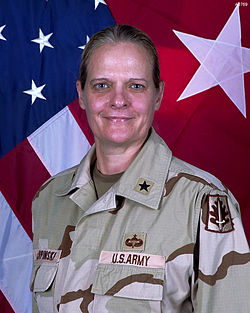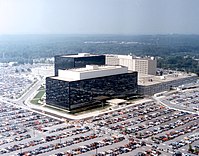 Nearly one-fourth of the students who try to join the U.S. Army fail its entrance exam, painting a grim picture of an education system that produces graduates who can't answer basic math, science and reading questions, according to a new study released Tuesday.
Nearly one-fourth of the students who try to join the U.S. Army fail its entrance exam, painting a grim picture of an education system that produces graduates who can't answer basic math, science and reading questions, according to a new study released Tuesday.
The report by The Education Trust bolsters a growing worry among military and education leaders that the pool of young people qualified for military service will grow too small.
Nearly 1 in 4 fails US military exam
Report raises doubts about Obama missile defense plan
 The missile defense system that President
The missile defense system that President
The report raises questions about legislation that would strengthen the U.S. commitment to the deployment plan that the White House was negotiating in return for Republican votes it needed for Senate approval of a new U.S.-Russia nuclear arms reduction treaty.
Officer at center of Abu Ghraib scandal vows to clear name
 Janis Karpinski believes one day, a call will come from Washington, D.C., and a voice will tell her she has been cleared of the wrongdoing that thrust her into the national spotlight. "So then they'll be, of course, an outpouring of media requests," Karpinski said. "Maybe I'll be selective. Maybe Olbermann, maybe O'Reilly."
Janis Karpinski believes one day, a call will come from Washington, D.C., and a voice will tell her she has been cleared of the wrongdoing that thrust her into the national spotlight. "So then they'll be, of course, an outpouring of media requests," Karpinski said. "Maybe I'll be selective. Maybe Olbermann, maybe O'Reilly."
The Hilton Head Island resident has even imagined the title of her next book: "Cleared," or perhaps "Vindicated." But so far, the exoneration she so deeply craves -- and freedom from the Abu Ghraib prison scandal -- eludes her.
Sex Assaults, Harassment Up at US Military Academies
 A congressionally mandated study concludes that sexual assault and harassment climbed at the service academies in 2009-2010, but the Pentagon questions whether the latest figures show problems are increasing or merely reflect a greater willingness by victims to report incidents.
A congressionally mandated study concludes that sexual assault and harassment climbed at the service academies in 2009-2010, but the Pentagon questions whether the latest figures show problems are increasing or merely reflect a greater willingness by victims to report incidents.
According to the Annual Report on Sexual Harassment and Violence at the United States Military Service Academies there were 41 sexual assaults on cadets or midshipmen, a 64 percent increase over the 2008-2009 period.
Army 'birther' changes course, says he'd deploy
 An Army doctor who disobeyed orders to deploy to Afghanistan because he questioned President Barack Obama's eligibility to be commander in chief told a jury Wednesday he was wrong to do so and would now deploy if he could.
An Army doctor who disobeyed orders to deploy to Afghanistan because he questioned President Barack Obama's eligibility to be commander in chief told a jury Wednesday he was wrong to do so and would now deploy if he could.
Lt. Col. Terrence Lakin was speaking during a court martial hearing Wednesday at Fort Meade. In videos posted on YouTube earlier this year, Lakin aligned himself with the so-called "birther" movement, which questions whether Obama is a natural-born citizen as the U.S. Constitution requires for presidents. Lakin had said he would "gladly deploy" if Obama's original birth certificate were released and proved authentic.
Air Force Blocks Media Sites
 The U.S. Air Force is blocking its personnel from using work computers to view the websites of the New York Times and other major publications that have posted classified diplomatic cables, people familiar with the matter said.
The U.S. Air Force is blocking its personnel from using work computers to view the websites of the New York Times and other major publications that have posted classified diplomatic cables, people familiar with the matter said.
Air Force users who try to view the websites of the New York Times, Britain's Guardian, Spain's El Pais, France's Le Monde or German magazine Der Spiegel instead get a page that says, "ACCESS DENIED. Internet Usage is Logged & Monitored," according to a screen shot reviewed by The Wall Street Journal. The notice warns that anyone who accesses unauthorized sites from military computers could be punished.
WikiLeaks: Cables reveal U.S. military role in Muslim world
 From the Saudi-Yemen border to lawless Somalia and the north-central African desert, the U.S. military is more engaged in armed conflicts in the Muslim world than the U.S. government openly acknowledges, according to cables released by the WikiLeaks website.
From the Saudi-Yemen border to lawless Somalia and the north-central African desert, the U.S. military is more engaged in armed conflicts in the Muslim world than the U.S. government openly acknowledges, according to cables released by the WikiLeaks website.
U.S. officials have struck relationships with regimes that generally aren't considered allies in the war against terrorism, and while the cables show U.S. diplomats admonishing the regimes to respect the laws of war, they also underscore the perils of using advanced military technologies in complex, remote battlefields with sometimes shifty friends.
More Articles...
- CIA implanted electrodes in brains of unsuspecting soldiers, suit alleges
- “Missile” Fired Off California Coast On Same Day That Chinese Sub Surprised US Carrier Group
- Pentagon group finds there is minimal risk to lifting gay ban during war
- Bragging about killing Afghan civilians was met with disbelief
Page 59 of 100

 Military Glance
Military Glance






























